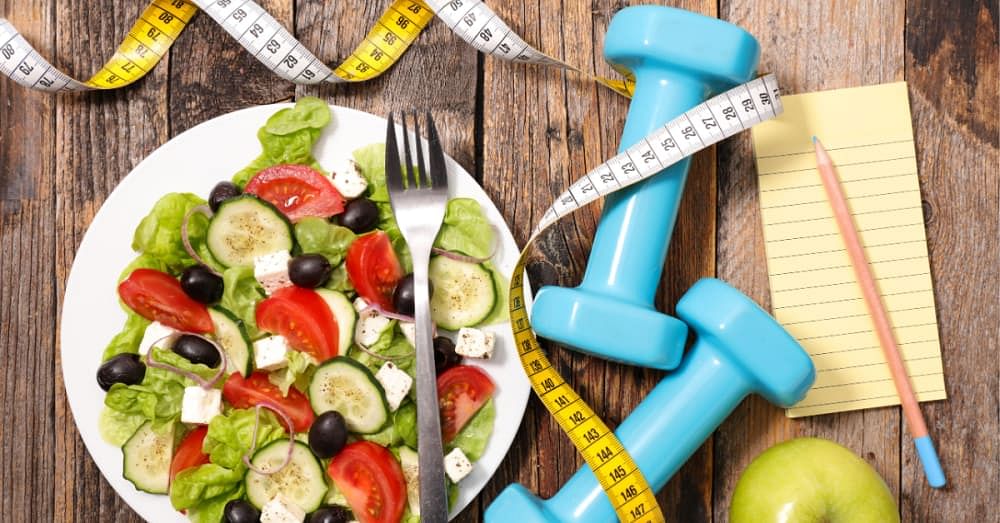Physical fitness is one of the core conditions of health that ensures the effective working of the entire body system. Social, mental, physical, and emotional health are the vital components of fitness and help perform the daily work activities effectively.
Learn the details of the components of physical fitness in this article.
What is Physical Fitness?
Physical fitness is the condition that helps us feel, look, and do our best. It pertains to the efficient working of the body system, allowing us to remain healthy and perform our daily chores perfectly. Efficient, here means performing the daily activities with the least effort.
Physical fitness involves the optimum performance of the lungs, heart, and muscles. What we do physically directly impacts our minds. In other words, fitness somewhat influences our mental alertness and emotional stability. We need to take measures like engaging in physical activities, improving our diet, and the daily dose of exercise to remain physically fit.
Types of Physical Fitness
Generally, physical fitness has 11 parts. Six out of them are health-related, while five are skill-based. Each type of physical fitness is vital for optimum performance in any activities, say sports. The health-based physical fitness includes flexibility, cardiorespiratory endurance, power, strength, body composition, and muscular endurance.
These aspects prepare the body to work daily energetically. Skill-related physical fitness helps one perform well in sports and physical activities involving motor skills. Here you can find out the best way to stay fit.
Components of Physical Fitness
Different schools, health clubs, and fitness centres consider these health-related components of physical fitness:
1. Cardiovascular Endurance
Cardiovascular endurance means the effective coordination of the lungs and heart to provide fuel and oxygen to the body during times of sustained workload. Effective execution of cardiovascular exercises improves the elasticity of the blood vessels, heart's contraction strength, and blood efficacy in carrying oxygen. Trainers use Step Test and Cooper Run to assess the cardiovascular endurance of the trainees.
2. Flexibility
Although often overlooked, flexibility is the most vital parameter of physical fitness. Insufficient flexibility makes the growth of the joints and muscles stiff, limiting one's movement. Flexibility training allows the body to move through its fullest motion range without facing stiffness or pain.
It plays a vital role in unhindered movement and affects one's agility, coordination, and balance. A perfect motion reduces the risk of injury and improves athletic performance, directly impacting one's fitness.
3. Muscular Strength
The maximum amount of force a muscle can produce is muscular strength. It is the power that helps you lift or carry heavy objects in a single go. Resistance training like bodyweight exercises, weightlifting, and resistance band exercises help improve muscle strength.
Climbing hills, cycling, and running are also better ways to enhance muscle strength. One-rep-max is the common way to test one's muscular strength. Improved muscle strength promotes physical fitness as it prompts the body to use more calories to burn fat.
4. Body Composition
Body composition is the most crucial component of physical fitness. It is the ratio of lean mass to the amount of fat in the body. Lean mass is the total body mass of bones, muscles, and organs. It is also known as the BMI or Body Mass Index, a ratio yardstick to analyse one's physical fitness. High composition of fat increases the risk of heart complications and heart disease.
5. Muscular Endurance
Muscular endurance is the ability of muscles to perform activities without feeling fatigued. This physical fitness involves multiple repetitions of any exercise, whether resistance training, weight training, or enhancing cardiovascular endurance. The better the muscle endurance, the less fatigued you will feel.
Skill Related Components of Physical Fitness
Skill-related components of physical fitness are the fitness modules relating to specific tasks, like sports. These components help the athletes to improve in different areas like balance in gymnastics, speed in football, etc.
1. Agility
Agility is the capacity to change direction effectively and quickly while maintaining body posture. If you struggle to move side-to-side and balance yourself, agility exercises will help you improve your performance.
It helps one acquire the skill of pivoting quickly, moving limbs, and turning. Agility training improves balance, mind-body coordination, flexibility, and one's recovery time as well.
2. Reaction Time
Reaction time is the time taken to respond to external stimuli. The lower the reaction time, the better the skill is. Running at full speed or running on a treadmill are some ways of improving reaction time.
3. Power
It is both a physical and skill-based component of physical fitness. Power is the maximum force a muscle group can apply in the shortest period. Power is the muscle's ability to exert optimum force in a short time, like swimming or running. Power contributes directly to cardiovascular endurance.
4. Speed
Speed is one of the skill-related components of physical fitness that directly links to agility. It refers to the movement of upper and lower limbs on the ground fast, like throwing, grabbing, or pulling objects. The speed training exercise is vital for athletes and those persons who handle heavy objects.
5. Accuracy
Accuracy is the body's ability to direct the body muscles and force towards a particular direction. Both accuracy and agility help enhance performances in throwing and jumping events like javelin throw, long jump, and high jump. Consistent practice, concentration, and meditation help improve accuracy.
Also Read: Exercise to Increase Height: 30 Exercises That Work!
Which is Not a Physical Component of Physical Fitness?
Physical fitness is all about one's ability to perform activities efficiently without feeling tired or stressed. Logic is not a physical component of physical fitness as it has nothing to do with physical, mental, and social health. Working on the health and skill components of physical fitness, consequently, helps them remain focused on their aim.
Summing Up on Components of Physical Fitness
Keeping these components of fitness in mind helps one reach fitness goals. One must incorporate these skills into their daily fitness routine to boost physical and mental health. Moreover, it helps one learn different skills effectively without feeling tired.
References
What is Physical Fitness? - https://medical.mit.edu/sites/default/files/Physical_Fitness_101.pdf











